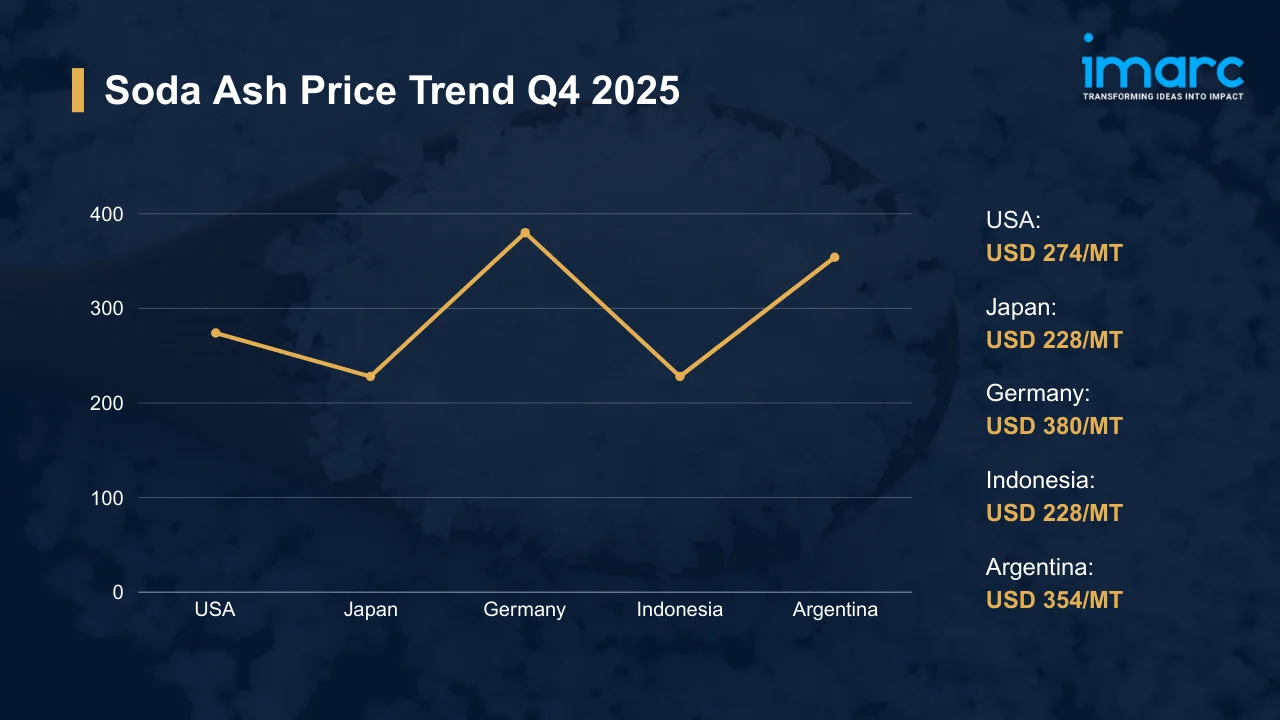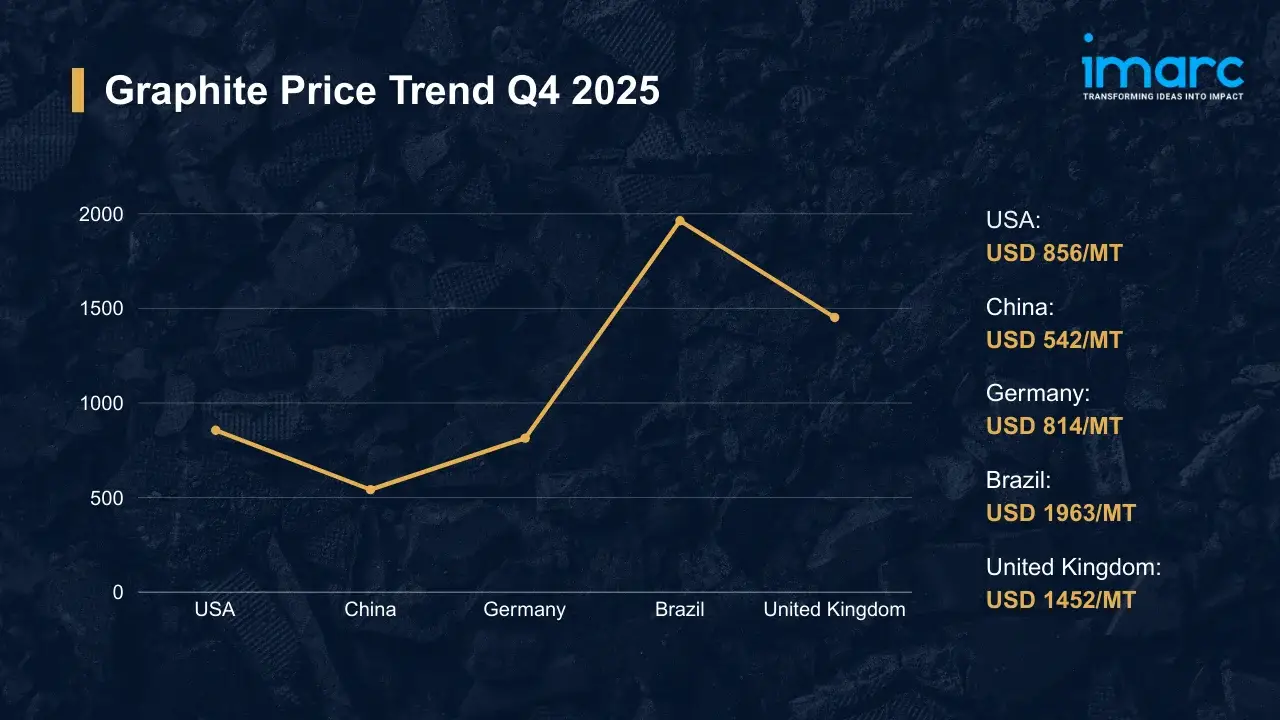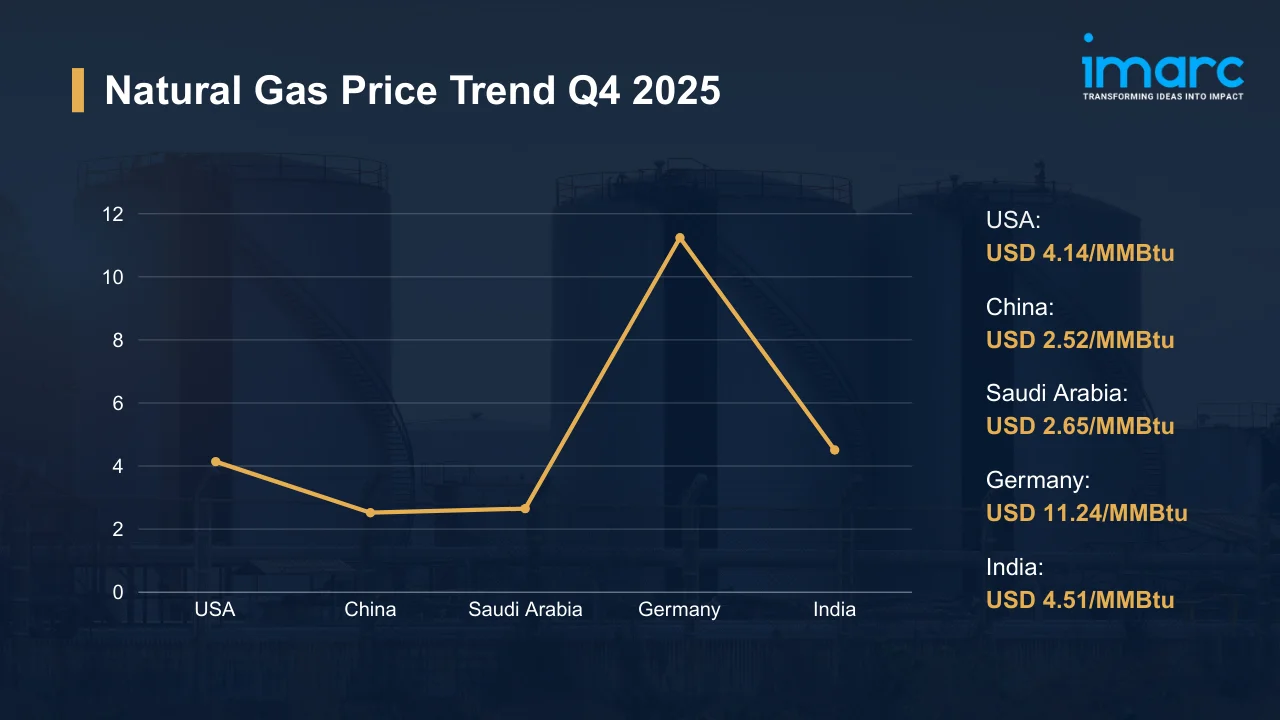Global Base Oil Prices Surge in Q3 2025 Amid Tight Supply and Rising Demand
04-Nov-2025-1.webp)
The global base oil market exhibited firm-to-mixed price dynamics in Q3 2025, shaped by refinery maintenance schedules, feedstock cost fluctuations, and region-specific consumption trends. According to IMARC Group’s latest publication, “Base Oil Prices, Trend, Index and Forecast Data Report 2025 Edition,” which contains updated insights for Q3 2025, prices strengthened in key export hubs such as North America and the Middle East, while Asian markets experienced mild pressure due to weaker industrial activity. Europe reported elevated production costs amid limited supply, whereas Latin America observed stable trading conditions supported by regional refinery output. The Middle East and Africa continued to benefit from robust export demand and ongoing infrastructure expansion.
Q3 2025 Base Oil Prices:
- China: USD 976/MT
- USA: USD 1,911/MT
- Germany: USD 1,338/MT
- Saudi Arabia: USD 1,455/MT
- UAE: USD 1,487/MT
Current prices underline base oil’s strategic role as a feedstock for lubricants and industrial fluids. Supply disruptions, coupled with maintenance at key refining facilities and resilient demand from the automotive and manufacturing sectors, supported moderate pricing strength across several regional markets during Q3 2025.
Key Regional Price Trends and Market Drivers:
China
Base oil prices in China reached USD 976/MT in September 2025. Softer demand from the lubricant and automotive sectors weighed on prices amid rising inventories at major refineries. However, firm crude oil benchmarks and constrained availability of certain Group II and III grades prevented steeper declines. Export activity toward Southeast Asia offered partial relief to domestic refiners.
USA
The United States recorded an average of USD 1,911/MT in Q3 2025. Planned refinery turnarounds and tightening feedstock supply lifted prices. Stable demand from automotive and industrial lubricant producers, along with rising transportation and crude oil costs, reinforced an upward trend through the quarter.
Germany
Prices in Germany stood at USD 1,338/MT in September 2025. Reduced availability of high-viscosity base oils and refinery maintenance constrained supply. Consistent demand from lubricant blenders and elevated energy and freight costs across the EU added mild upward pressure, offsetting limited market slack.
Saudi Arabia
Base oil prices in Saudi Arabia averaged USD 1,455/MT. The quarter’s stability was maintained by strong export demand and healthy domestic consumption from lubricant producers. Supply disruptions at select facilities tightened regional inventories, while crude-linked feedstock costs elevated production expenses.
UAE
Prices in the UAE reached USD 1,487/MT in September 2025. Market sentiment remained firm due to constrained output and active export demand from Asia and Africa. Refinery maintenance limited local availability, and higher crude costs lifted production costs. Consistent procurement from domestic blenders sustained overall price support.
Q3 vs Q2 2025:
| Country | Q3 2025 (USD/MT) | Q2 2025 (USD/MT) | Q3 vs Q2 Trends |
|---|---|---|---|
| USA | 1,911 | 1,686 | Prices rose due to tight supply and refinery maintenance |
| Saudi Arabia | 1,455 | 1,790 | Prices softened as crude-linked feedstock costs stabilized |
To access real-time prices Request Sample
Base Oil Industry Overview:
The global base oil market reached a volume of 33.9 Million Tons in 2024 and is projected to reach 40.2 Million Tons by 2033, growing at a CAGR of 1.90% during 2025–2033. The market expansion is driven by increasing demand for high-performance lubricants across automotive, industrial, and marine applications. Advancements in refining technologies, including hydrocracking and hydroisomerization, have enhanced the production of Group II and Group III base oils with superior oxidative stability and low sulfur content. The steady shift toward cleaner, fuel-efficient lubricants continues to support global consumption, particularly in developed economies emphasizing sustainability and efficiency in manufacturing processes.
Rising industrialization and vehicle ownership across Asia-Pacific, coupled with infrastructure modernization in the Middle East and Africa, are key contributors to sustained demand. Technological improvements in refinery integration and synthetic base oil production have strengthened supply reliability, while policy support for energy conservation promotes long-term adoption. As end users transition toward low-emission and extended-drain lubricants, the market outlook remains robust, anchored by innovation and expanding production capacity in major refining hubs.
Recent Market Trends and Industry Analysis:
Base oil continues to be a critical raw material for lubricants, underpinning industrial efficiency and engine performance. The market in Q3 2025 was marked by renewed investment in Group III and III+ capacity expansions to meet growing demand for premium-grade lubricants. Automotive, power generation, and heavy machinery sectors accounted for steady offtake, while increased marine and aviation lubricant requirements provided further growth impetus. Volatility in crude oil benchmarks and evolving trade routes reshaped procurement strategies, with producers emphasizing long-term contracts and diversification of feedstock sourcing.
Major developments during the year include capacity additions by key companies, alongside refinery modernization projects across Asia and North America. The rising penetration of synthetic and bio-based base oils, driven by environmental compliance and OEM performance standards, is reshaping industry dynamics. Moreover, the shift toward energy-efficient formulations and low-carbon lubricants aligns with global decarbonization goals, ensuring that base oil remains a cornerstone of both traditional and next-generation lubricant systems worldwide.
Strategic Forecasting and Analysis:
IMARC’s forecasting framework projects steady base oil demand growth through 2026, supported by sustained automotive and industrial consumption. Short-term fluctuations will depend on crude oil price movements, refinery turnaround schedules, and logistics conditions. Long-term supply balance is expected to improve with upcoming capacity expansions in the Middle East, North America, and Asia-Pacific, stabilizing prices across major grades and regions.
Key Features of the Report:
- Price Charts and Historical Data
- FOB and CIF Spot Pricing
- Regional Demand-Supply Assessments
- Port-Level Price Analysis
- Sector-Specific Demand and Supply Insights








.webp)




.webp)












